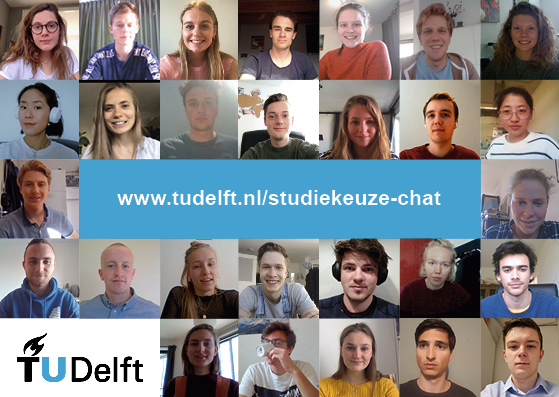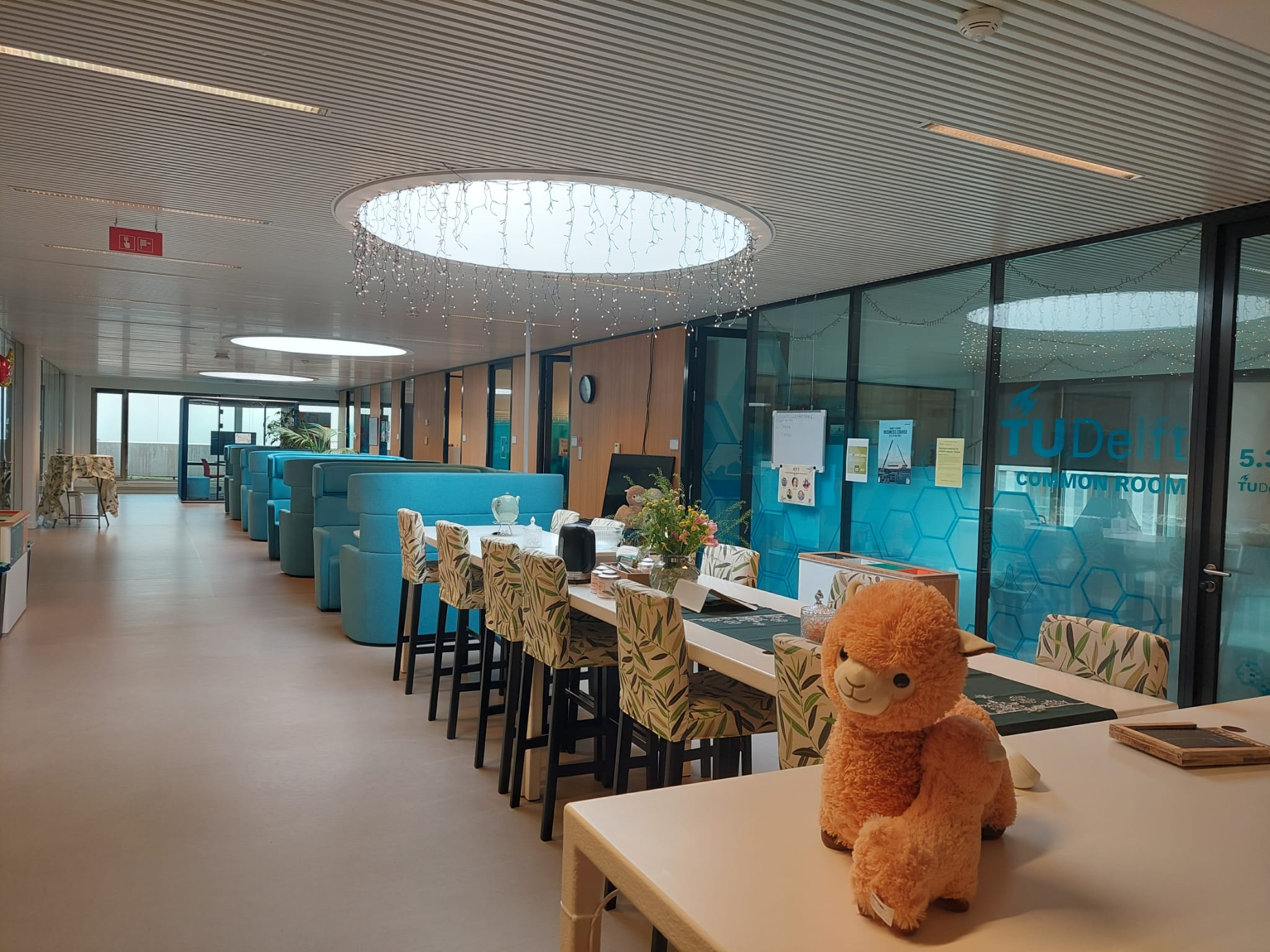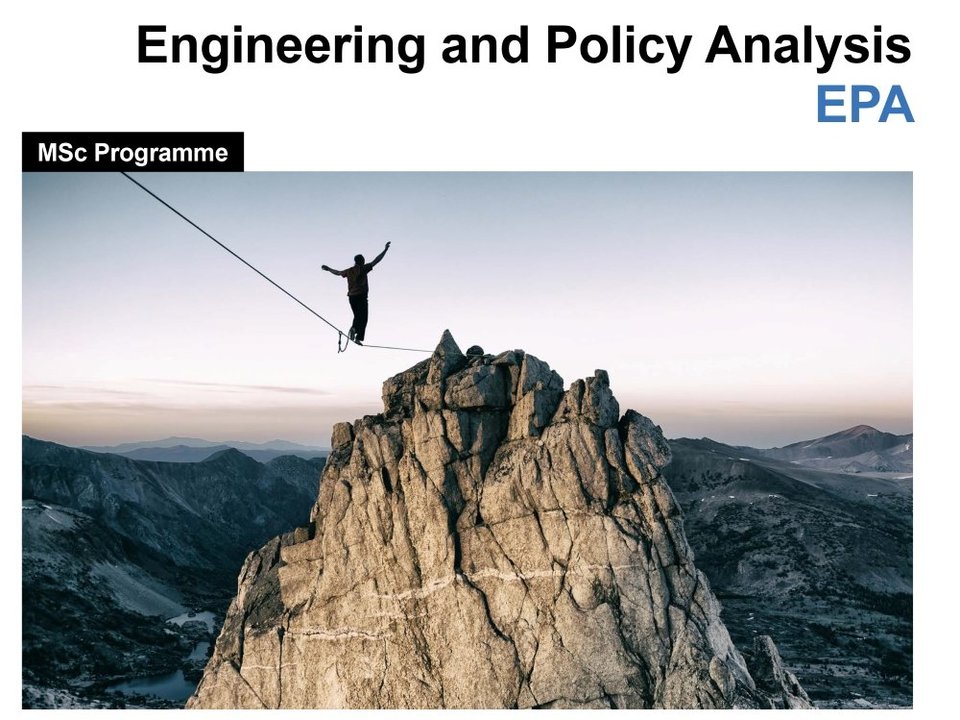MSc Engineering and Policy Analysis
Do you aspire to have an impact on real-world decision-making by bridging the gap between engineering and policy? Would you like to join an international community of students from diverse engineering backgrounds at the top-ranked Dutch University of Technology? Picture yourself studying in the center of The Hague, where you will be at the heart of Dutch governments, international institutions and NGOs, on the TU Delft Campus The Hague.
The MSc program in Engineering and Policy Analysis offers talented students from around the world the opportunity to bring their engineering mindset to policymaking to address today’s most pressing global challenges.
Degree: Master of Science Engineering and Policy Analysis
Credits: 120 ECTS, 24 months, full time
Accreditation: Accredited by NVAO
Starts in: September
Language: English
Location: The first year of EPA is taught in the city of The Hague. The second year will be taught partly in Delft.
Ranking: 13th for Engineering and Technology
Application deadline: April 1st (International), May 1st (Dutch)
Scholarships: Tuition-free scholarships available
Decision-Making with Advanced Modelling
A core element of the EPA program is modeling for policy-making. You will learn to use cutting-edge modeling and simulation methods to simulate different policy scenarios and evaluate solutions that can have a lasting societal impact. This approach ensures that you can turn data into actionable insights, shaping informed and effective policies.
But what exactly is policy?
In EPA, we view policy as more than just government decisions—it's anything that influences society. Whether it is corporate strategies, public sector initiatives, or community-driven efforts, policy spans across all sectors, enabling you to make a societal impact in various domains.System Thinking
International grand challenges, such as climate change, health crises, water management, cybersecurity, social inequality, energy transition, and urbanization, are complex because they involve multiple organizations and factors that interact with each other. System thinking allows you to analyze the relationships within these interconnected systems. By understanding how different components influence one another, you can propose effective interventions and policy designs. What's more, by understanding the dynamics of policymaking, human behavior, economics and ethics, you are able to improve the impact of your proposed interventions
Embrace a Truly Interdisciplinary Approach
One of the unique strengths of EPA is its interdisciplinary nature. The curriculum draws from a wide range of fields, including engineering, economics, political science, and other social sciences, creating a holistic learning experience. This broad perspective allows you to address challenges from multiple angles and better understand the complexities of policy in a global context.
You will also be able to specialize in the topic of your choice, because the curriculum includes 20 ECTS of elective space, freedom to dedicate your 30 ECTS master thesis to your interests within the scope of our programme and plenty of options for internships and exchange.
Thrive in an International Close-Knit Community
The program also fosters a strong international close community. You will collaborate with students from around the world, exchanging diverse ideas and experiences. This global network not only enhances your academic experience but also prepares you for leadership roles in an increasingly interconnected world.





